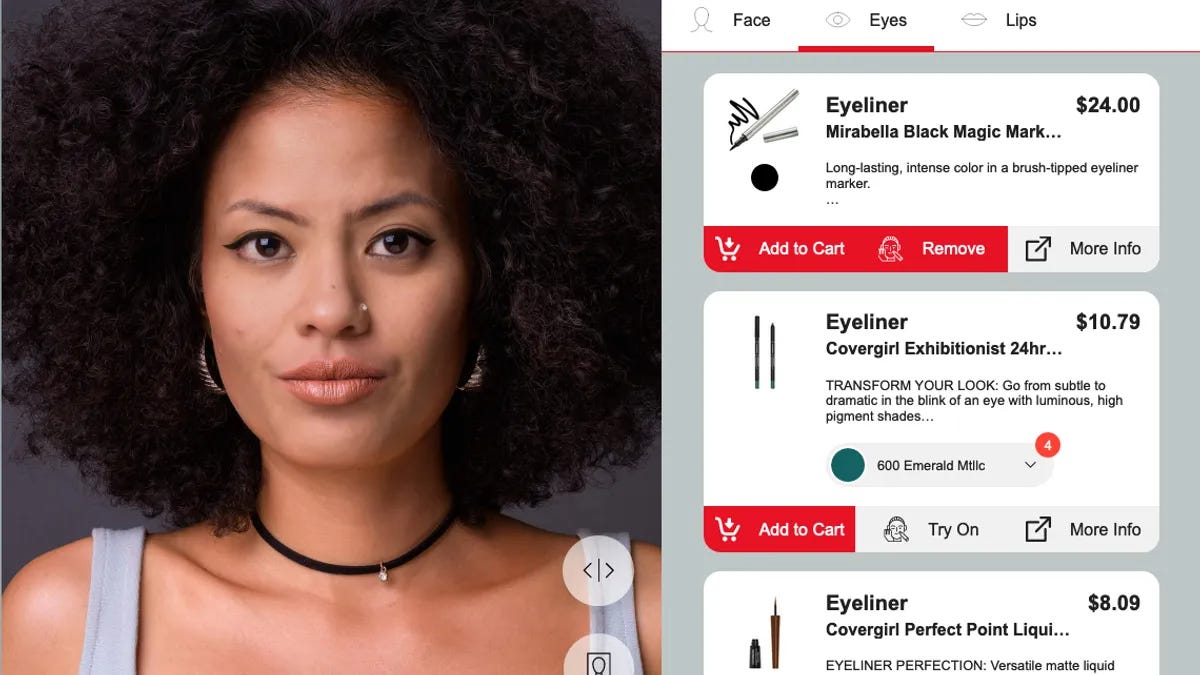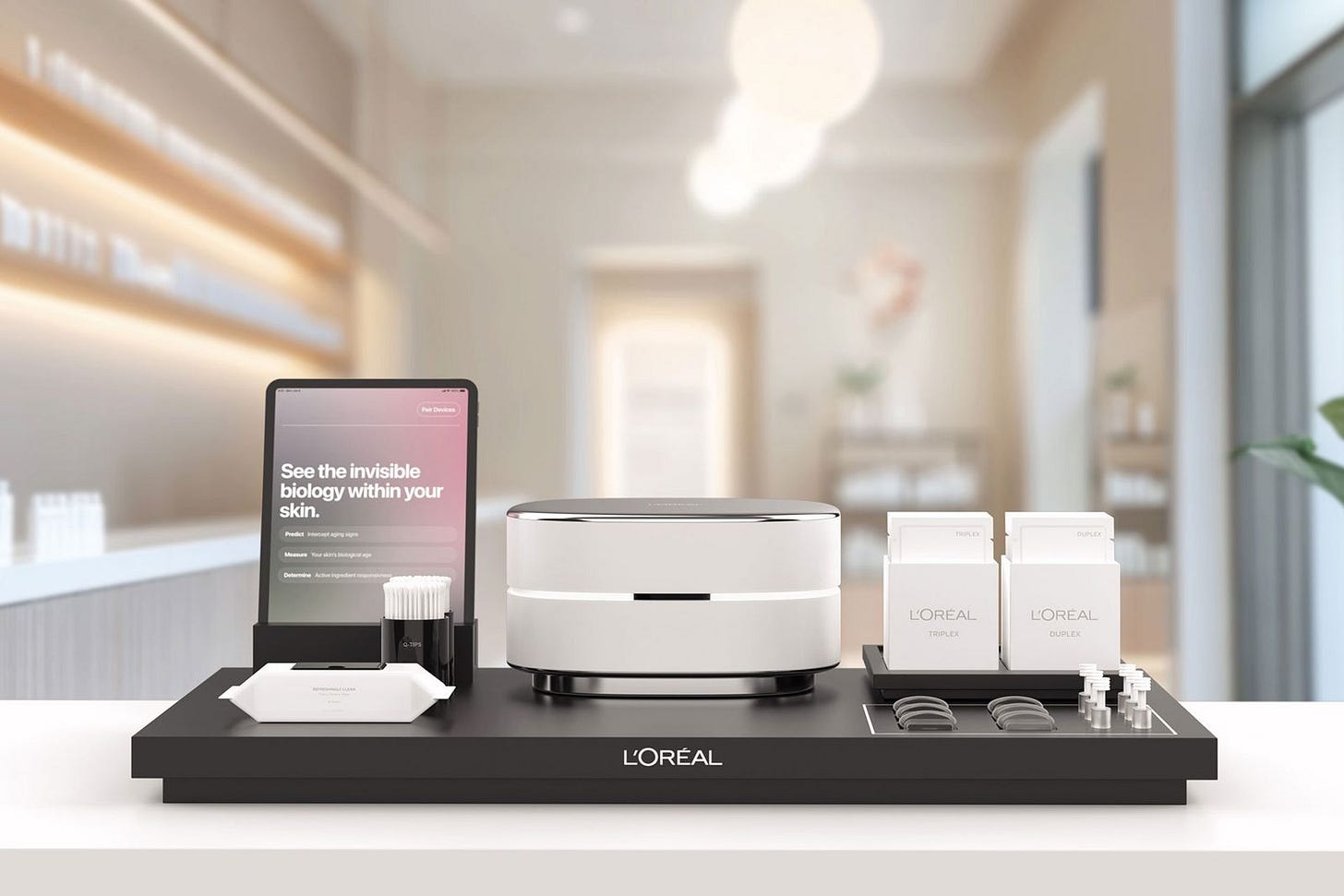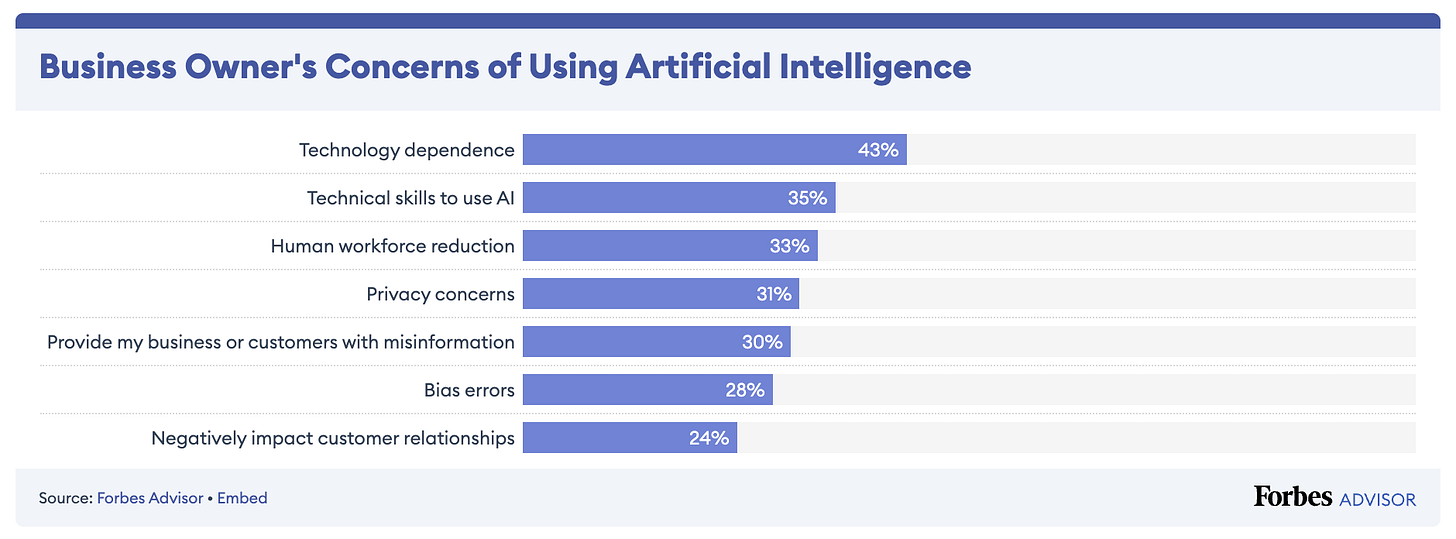How top brands adopt AI (and you could too)
Leading consumer & retail brands like Casper, Away, and Adore Me are seeing measurable results from AI. Learn how they're driving revenue, reducing costs, and building customer loyalty.
97% of businesses struggle to demonstrate real business value from generative AI. Yet some consumer brands are seeing triple-digit conversion increases and dramatic efficiency gains.
The pattern among winning executives is clear: they spent years building the right foundations - quality data, integrated systems, and teams that can leverage AI effectively.
Today leading brands see measurable results across revenue generation, cost reduction, and customer retention.
Let's examine how leading consumer and retail brands are using AI to transform their operations and what it took to get there.
Editor’s note: This article draws on publicly available case studies and industry reports. Conway & Co is not affiliated with any of the AI technology providers mentioned. While we strive for accuracy in reporting implementation outcomes, we recommend conducting a careful due diligence when evaluating specific technologies.
Table of contents:
L’oreal: skin age calculator
02 AI for customer retentionDr. Simon Ourian: a celebrity dermatologist available for all
03 AI for cost reduction
01 AI for revenue generation
Three key approaches emerge:
enhancing conversion rates through personalized shopping experiences,
accelerating customer research to inform product development,
and optimizing pricing and merchandising decisions.
The focus is on using AI to remove friction from the purchase journey while gathering deeper customer insights.
JCPenney: 108% boost in conversion rate
The department store chain is focused on protecting its future since emerging from bankruptcy under new ownership in 2020. One of the central pillars of the retailer’s strategy is advanced technology, including AI and machine learning.
The retailer says that access to rich zero- and first-party data helped to increase engagement, conversion rates, and stronger customer loyalty across all channels.

JCPenney took a dual approach by implementing both an AI beauty advisor and an AI makeup artist.
The in-store AI beauty advisor drove a 23% higher AOV in Q1 2024.
The AI makeup artist achieved an even more impressive 108% boost in conversions.
Supergoop: increasing the POs with retailers by 50%
Supergoop faced a launch challenge: historical sales data wasn't sufficient for predicting demand of their new innovative product. The solution came from Daash's AI platform, which analyzes real-time competitor performance and market trends across retail and DTC channels. Armed with this competitive intelligence, Supergoop convinced retailers to increase opening purchase orders by 50%.
Adore Me: personalised products via text prompts
Adore Me, recently acquired by Victoria's Secret for $400 million, has launched "AM by You", which allows customers to create personalized lingerie sets using simple text prompts. The visuals are generated by Leonardo AI technology.
The system generates unique patterns and designs while maintaining quality control through a moderation process and human review. Despite the customization, they've maintained their standard retail price range ($39.95 to $59.95), with custom sets starting at $54.95.
Away: accelerated customer research and discovery
Away was preparing to launch their biggest product line since their original hardside luggage in 2016. They needed to deeply understand how customers choose between different luggage materials, which would inform their web design, visuals, product information, and comparison pages. Traditional research methods had limitations - surveys lacked depth, while in-depth interviews were too time-consuming and reached too few people.
Away partnered with Outset, an AI-moderated research platform to conduct 78 in-depth customer interviews in just one week, using AI to moderate the conversations.
The AI-driven insights led to results:
Their material education page achieved a 20% add-to-cart rate
This performance was 25% higher than their other product guides
The success was particularly notable since the material education page targeted a more specific, high-intent audience
L’oreal: skin age calculator
“It’s like wearables, but for your skin,” says Vania Lacascade, the group’s chief innovation officer. “Imagine getting your blood analysed — but instead, it’s your skin, at the cellular level, in minutes.”
The Cell Bioprint tool, developed in collaboration with Korean biotech innovator Nanoentek, utilizes “lab-on-chip” technology to analyze a customer’s skin cells. This allows it to predict their responsiveness to ingredients like retinol and identify potential concerns, such as acne, before they appear. The demand for hyper-personalized and medicalized beauty is rapidly growing, driven by consumers' increasing focus on longevity and the long-term effects of skincare.
To retain a competitive edge, the group invests $1 billion a year into its research and innovation arm, which translates to new products, patents and technologies globally.
Critical considerations:
Infrastructure readiness is crucial - JCPenney's success required strong WiFi, proper hardware setup, and seamless POS integration before deployment
Human oversight remains essential - Adore Me maintains a two-part moderation system for AI-generated designs, combining automated checks with human review.
Focus on tasks where robots outperform humans - a human dermatologist could not perform the type of analysis that L’oreal’s skin age calculator does. This makes the service attractive and exciting to try.
02 AI for customer retention
Enabling deeper customer relationships by transforming one-time transactions into ongoing conversations.
Leading brands are using AI to provide consistent, personalized support across the entire customer lifecycle, while carefully balancing automation with human interaction.
The key is using AI to enhance, rather than replace, the human elements of customer service.
Dr. Simon Ourian: a celebrity dermatologist available for all
Dr. Simon Ourian has created a sophisticated virtual consultation platform that uses an AI avatar incorporating his own voice and image.
This approach maintains the personal touch of the celebrity dermatologist while making his expertise more widely accessible. The AI system is trained on millions of data sets focusing on various skin parameters, including, hydration levels, wrinkle patterns, skin texture variations, etc.
The system performs a comprehensive skin analysis by:
Evaluating multiple skin parameters simultaneously
Comparing results against the extensive training database
Identifying specific skin concerns and conditions
Creating a detailed skin profile for each patient
After the assessment, the system issues tailored product routines and provides customised skincare recommendations.
Casper: building long-term customer relationships
Casper recognized that traditional chatbots weren't meeting customer needs in buying a mattress.
Powered by Sierra, Luna 2.0 is particularly interesting in its ability to build long-term relationships with customers. Rather than just handling one-time purchase questions, it assists customers throughout their entire "sleep journey," including helping with pillows, bed frames, and other sleep-related products. It can also communicate in multiple languages.
Luna 2.0 is optimised daily by two team members, who review customer conversations and update the AI's knowledge base. This human oversight ensures the system stays current and improves its resolution capabilities.
As a result, Luna 2.0:
Has a 74% resolution rate.
Increased customer engagement by 20%.
Remained stable during high-traffic periods.
Zalando: Conversational search
Zalando's AI shopping assistant takes a unique approach to product discovery. Instead of requiring customers to know exact search keywords, the system engages in natural conversations to help narrow down options and discover new products. Through these interactions, the AI has helped half a million customers find what they're looking for - even when they started with vague ideas. The company is now developing an enhanced search function where results refresh in real-time as customers type, combining the benefits of conversational AI with the speed of traditional search.
LVMH: luxury rules for AI
LVMH has created what they call an "AI Factory" - essentially a library of algorithms that can be used across their portfolio of brands including Louis Vuitton, Dior, and Tiffany & Co. The team builds modifiable, modular algorithms that brands can adapt to their specific needs.
LVMH has a clear stance on how AI should be used in luxury. Unlike many other retailers, they have deliberately decided to avoid customer-facing AI tools. They believe their competitive advantage lies in their human client advisors, so they keep AI working behind the scenes to enhance, rather than replace, these personal interactions.
I.e., the system helps client advisors make better recommendations by suggesting which high-potential customers to contact and identifying product category affinities for different customer segments.
Also, they've developed luxury-specific prediction models that account for the unique nature of scarcity in luxury goods. These algorithms can determine optimal product distribution across different zones and stores, considering the specific dynamics of luxury retail.
Critical Considerations:
Dedicated resources for ongoing optimization - Casper assigns two full-time team members to review and update their AI system daily.
Understanding your customer - LVMH defined AI for luxury and didn’t attempt to replace human relationships with AI. Meanwhile Kering's Madeline chatbot was discontinued as it spoke in what sounded like marketing copy.
Quality data at scale - The principle of “garbage in → garbage out” persists. Dr. Simon Ourian AI bot uses millions of data points to provide valuable output for the user.
03 AI for cost reduction
Transforming operational efficiency by:
streamlining supply chain operations,
automating administrative tasks,
and reducing error rates in critical business processes.
Companies are using AI to consolidate data across systems, predict potential issues before they occur, and optimize resource allocation - leading to measurable cost savings and improved operational accuracy.
Modern Animal: reducing the administrative load
In May 2024, Modern Animal introduced several AI-driven enhancements to Claude, aiming to reduce the administrative load on veterinary practitioners.

Key features include:
Patient overview: This function synthesizes a pet's entire medical history into a concise snapshot, enabling veterinarians to quickly familiarize themselves with pertinent information before appointments.
Visit summarization: During consultations, notes are taken and then transformed into client-friendly summaries. Veterinarians review these summaries before sharing them with pet owners through the Modern Animal app, ensuring clear and effective communication.
Lab work Interpretation and Summarization: The software automatically generates preliminary analyses of diagnostic results for the veterinarian's assessment. Once approved, these findings are translated into easily understandable summaries for clients, accessible via the app.
The development required close collaboration between the tech team and approximately 40 clinical staff members. This partnership included beta testing, feedback sessions, and "shadowing," where technologists observed clinicians to identify real-time opportunities for innovation. As a result, these AI enhancements have the potential to save veterinarians up to two hours per day.
Huel: optimising the supply chain
Huel faced a common challenge for growing DTC brands - supply chain complexity. They partnered with 7bridges platform, which gives a "bird's-eye view" of all their shipments across different transportation modes and routes, consolidating this information in one place. Huel can audit invoices for accuracy, addressing the industry problem where 1 in 5 logistics invoices contain errors.
The platform also analyzes shipping rates and benchmarks performance against market standards, helping Huel negotiate better rates - other companies using this AI system have achieved approximately 10% cost savings. This technology integration supports Huel's £20 million funding round.
Stanley: predicting supply chain disruptions
Stanley 1913, riding the viral success of their tumblers, implemented Kinaxis' Maestro AI platform to transform their supply chain management. The system processes data across procurement, production, and fulfillment to detect disruptions in real-time and enable rapid scenario planning.
"Advanced predictive analytics through machine learning allows us to gain end-to-end visibility and facilitate sustainable growth, while minimizing our carbon footprint," says Karthik Sivakumar, VP of Supply Chain.
Critical Considerations:
Data quality determines results - Supply chain optimization depends on accurate, consolidated data across all shipping modes and routes.
Process clarity - Huel needed to map out critical operations before implementing technology to optimise them.
Change management matters - Modern Animal's success came from extensive beta testing and "shadowing" sessions with staff before full implementation.
Final words
Top consumer and retail brands have been spending millions in the last three years to integrate AI and finally deliver measurable results. Although there’s a lot of unfounded hype about AI, it’s a race everyone must take part in.
A new category of winners is emerging: AI-native brands that will dominate the market in the coming year.
If you want to accelerate your AI game, acquiring the latest tech won’t cut it. It requires a robust data foundation: quality input, integrated pipelines, infrastructure, and a team that is able to manage it — that’s where the magic happens.
If you’re just starting with AI:
Check out our guide "The Digital Leader's Guide to Actually Useful AI", which provides a practical framework for getting real results with AI - from choosing the right first project to building trust with your team.
Want to win the e-commerce game with AI?
Conway & Co is your on-demand CTO. We help top consumer and retail brands to get all digital capabilities in place and deliver on growth ambitions. Learn more about us here.












